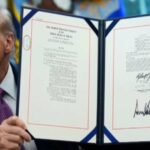The feud between Elon Musk and Brazilian Supreme Court Justice Alexandre de Moraes has escalated in recent days, with de Moraes threatening to suspend social media giant X nationwide if Musk does not comply with his orders. Musk has responded with insults, calling de Moraes a “tyrant” and “a dictator.” This conflict revolves around issues of free speech, far-right accounts, and misinformation, sparking interest and concern among many in Brazil.
The basis for de Moraes’ threat stems from X removing its legal representative from Brazil after she was threatened with arrest by the justice. De Moraes then gave the platform 24 hours to appoint a new representative or face a shutdown until his order is met. Brazilian law requires foreign companies to have legal representation in the country to ensure they can be notified of legal decisions and take necessary action. Failure to comply could have severe consequences, especially with Brazil’s upcoming municipal elections and the potential for fake news to spread unchecked.
The absence of a legal representative for X in Brazil could hinder the platform’s ability to respond to takedown orders and legal notices, particularly during the election season. This lack of representation would make it difficult for X to comply with legal requirements in a timely manner, potentially leading to further conflicts with Brazilian authorities. Other tech companies like Telegram, despite having minimal physical presence in Brazil, have still appointed legal representatives to navigate the country’s legal landscape.
Luca Belli, coordinator of the Technology and Society Center at the Getulio Vargas Foundation, emphasized the importance of having a legal representative in Brazil for foreign companies operating in the country. He highlighted the potential challenges that X may face without a designated representative, especially in navigating legal issues and compliance during sensitive periods like election campaigns. The ongoing dispute between Musk and de Moraes underscores the broader tensions around free speech and online regulation in Brazil.
As the standoff continues between Musk and de Moraes, the outcome remains uncertain. The conflict reflects larger debates around the responsibilities of tech giants, the limits of free speech, and the role of governments in regulating online platforms. The international attention on this dispute highlights the global implications of clashes between powerful individuals and institutions over issues of governance, misinformation, and digital rights. The resolution of this conflict could have far-reaching consequences for the tech industry and online freedom in Brazil and beyond.









